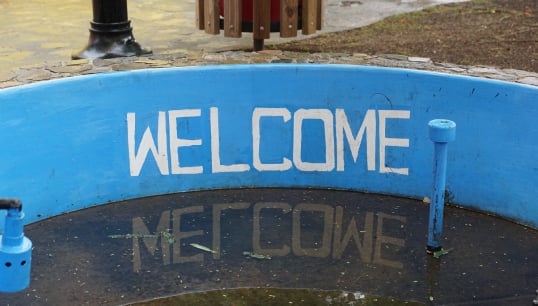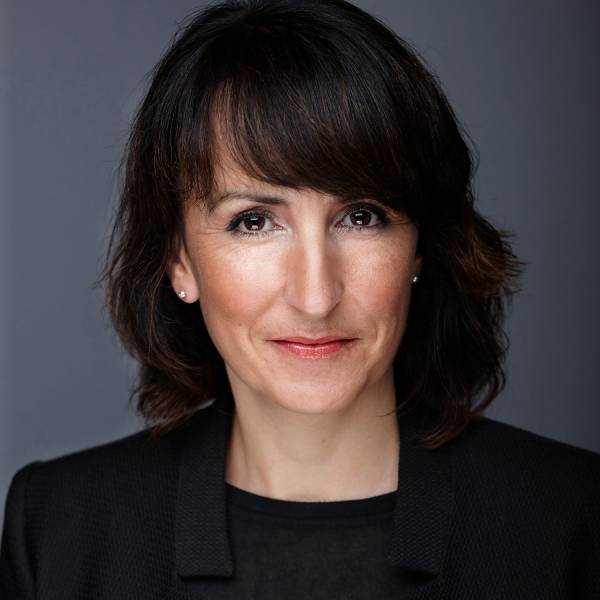- Topics
- Campaigning
- Careers
- Colleges
- Community
- Education and training
- Environment
- Equality
- Federation
- General secretary message
- Government
- Health and safety
- History
- Industrial
- International
- Law
- Members at work
- Nautilus news
- Nautilus partnerships
- Netherlands
- Open days
- Opinion
- Organising
- Podcasts from Nautilus
- Sponsored content
- Switzerland
- Technology
- Ukraine
- United Kingdom
- Welfare

There's no getting away from it: British and Dutch crews are still largely the preserve of the straight, white man. However, maritime employers are starting to see the value of making a more diverse range of workers feel included onboard and recruiting from a wider talent pool. Heidi Heseltine of the Diversity Study Group explains why

The principles of diversity, equity and inclusion (DEI) have been steadily gaining momentum within the maritime industry over recent years, but the pace of change has now increased significantly, both for those at sea and ashore.
Until very recently, the focus of this shift in attitudes has been largely on shore-based staff, but major events such as the Covid-19 pandemic and the Ukraine war are shaking up the old order at sea, too.
Another factor behind the new-found interest of maritime employers in DEI is the introduction of reporting and regulation at a corporate level, particularly environmental, social and governance (ESG) reporting.
The new reality of recruitment
But what the situation really boils down to is a sizeable and growing talent shortage for both shore-based and seafaring roles, and to fill these places, maritime employers need to make sure their jobs appeal to a broader range of recruits.
Ashore, people are often in short supply and increasingly able to dictate their terms, with flexible working and the ability to work from home being priorities for many. At sea, crews are also looking for a better work-life balance, and employers need to take action in order to attract people with new skillsets from outside the industry to support emerging technological and environmental requirements.
The Seafarer Workforce Report from BIMCO in 2021 predicted a need for around 90,000 officers worldwide by 2026. Meanwhile, the ICS Diversity Tracker showed that officer recruitment has reduced from traditional maritime countries in recent years and that attrition rates for cadets are high.
Bringing all these factors together, organisations are having to adapt fast to ensure their businesses remain competitive, address the increasing 'human element' demands of investors, suppliers and consumers, and are attractive to existing and future talent.
Wins from an inclusive workplace
To achieve these goals, many companies are trying to foster a sense of inclusion and belonging. They are seeking to provide working environments that offer psychological safety, where people can be themselves, share opinions and contribute ideas without concerns for any social or career implications.
Where this can be achieved, the diversity of thought coming from different experiences and different perspectives can thrive and organisations can foster greater employee satisfaction leading to better retention and improved talent attraction. It also allows companies to innovate more quickly and be more adaptable to change.
With seafaring in particular, where the emphasis is on safety, this also encourages people to feel comfortable in speaking up and highlighting any areas of concern without fear of judgement or repercussion. As companies increasingly have to turn to different demographics for their future seafarers, inclusive working cultures and practices also facilitate the integration of diverse talent.
What are maritime employers doing about DEI?
Practical steps being taken by organisations vary. Bespoke employee engagement surveys are an area we see increasing dramatically for the seafaring sector. This is a way of listening to employees' experiences and perceptions in order to identify areas that are working well and others where improvements may be needed. It is important to note that the success of any such initiatives depends on building trust through clear (usually leadership led) communication and taking action to address key outcomes.
Industry stakeholder initiatives such as the All Aboard Alliance, of which the Diversity Study Group is a Founding Knowledge Partner, are bringing together industry leaders from across the maritime sector to collaborate and drive positive change, at sea and ashore.
Physical and mental wellbeing initiatives are also more widely recognised as being of critical importance (particularly to seafarers), encompassing fitness, lifestyle, nutrition, relaxation and communication. Furthermore, social interaction amongst employees has risen through improved technology platforms, serving to bring people together as a community.
Reviews of recruitment and promotion practices and criteria, mentoring opportunities, role modelling, inclusive leadership training, increased employee social interaction, improved technology, better corporate communication and sharing of success stories are regular features within the toolbox of DEI strategies.
Achieving a sustainable, engaged and loyal workforce is something in which everybody has a part to play. Whilst many companies are just starting out, the increase in tangible action at industry, corporate and individual levels is extremely encouraging and will continue to underpin the success of the transition we are in.
- Heidi Heseltine is the founder of the Diversity Study Group, a consultancy offering services to help maritime organisations embrace diversity, equity and inclusion.
Tags
